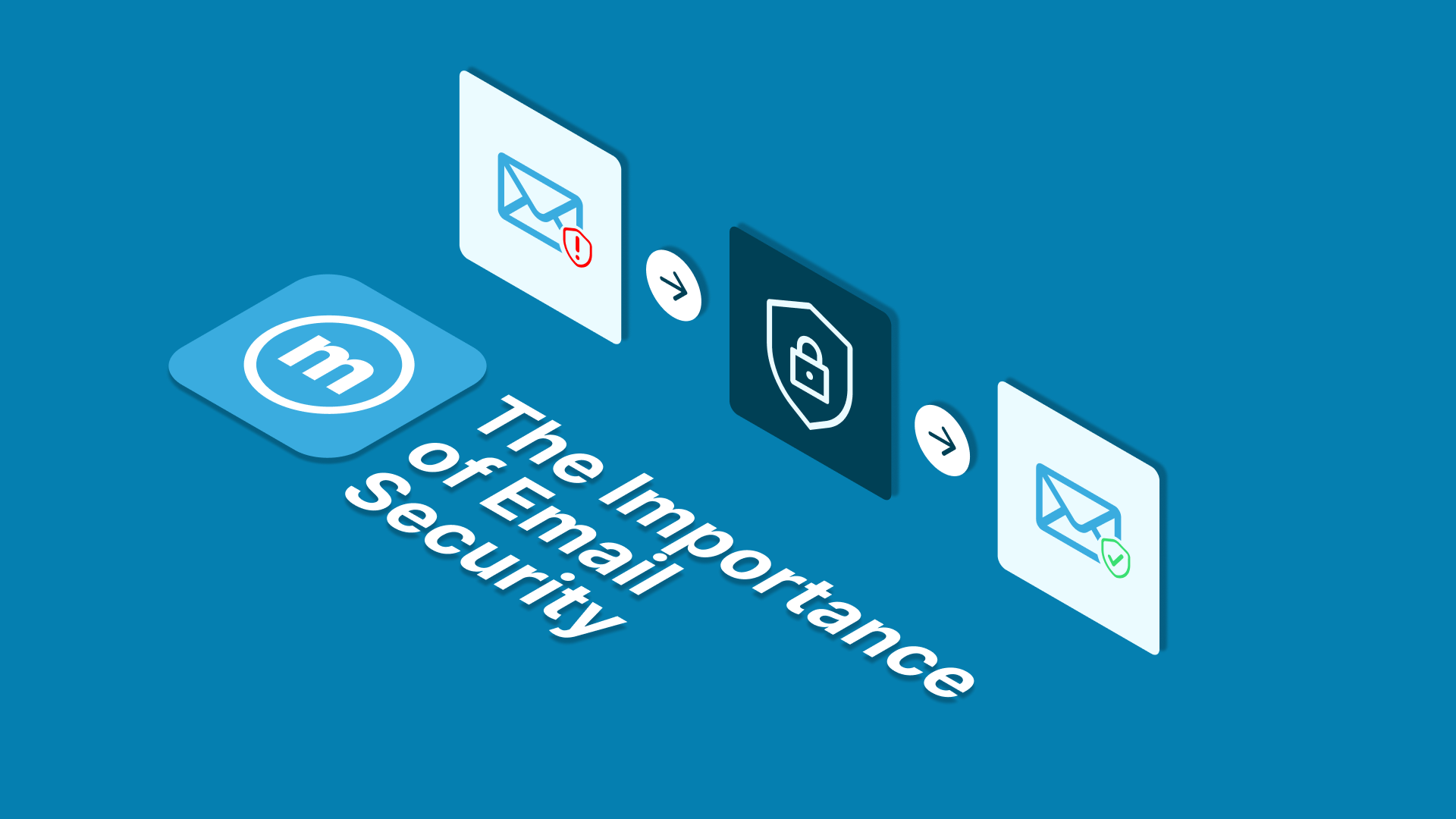The Importance of Email Security in Safeguarding Business

In today's digital world, email is our primary tool for communication, both personal and professional. Yet, many people underestimate the importance of securing their email messages. Unfortunately, failing to do so can have serious consequences.
Here's why securing your email messages is crucial:
As your emails traverse the digital landscape, they carry more than just messages; they hold the keys to your personal lives, sensitive business information, and critical transactions. Now picture this: a cyber highway bustling with information exchange, but amidst this bustling activity lies a lurking danger.
Understanding why securing our emails is crucial unveils the pivotal role it plays in safeguarding our privacy, protecting sensitive data, and fortifying our digital interactions. Let's delve into the core reasons why email security stands as an indispensable shield in our digital age.
1. Protecting Sensitive Information
Emails often contain sensitive information like passwords, bank account details, personal documents, and confidential business data. Hackers can access this information through various means like phishing attacks and malware, leading to financial losses, identity theft, and reputational damage.
Various regulations, such as GDPR, HIPAA, or CCPA, mandate stringent measures to protect sensitive data shared via email. Compliance with these regulations is crucial to avoid legal consequences and uphold trust with clients or stakeholders.
2. Ensure Confidentiality
Confidentiality in email security refers to the protection of information from unauthorized access or disclosure, since emails often contain sensitive information, be it personal or professional. It ensures that only authorized individuals can access and understand the content of an email. Secure email protocols and encryption methods prevent unauthorized access, shielding your data from prying eyes.
3. Maintaining Privacy
Personal emails contain private conversations and communications with loved ones. Breaches of privacy can be emotionally damaging and embarrassing, impacting personal relationships and even careers.
Protecting the privacy of both the sender and receiver is vital. Encryption techniques ensure that only authorized individuals can access and comprehend the content, maintaining the privacy of communications.
4. Integrity
Tampering or alteration of emails during transmission can lead to misinformation or manipulation of content. Email security measures verify the integrity of messages, ensuring they remain unchanged from sender to recipient.
5. Preventing Cyber Threats
Email is a common target for cyber threats like phishing, malware, and ransomware attacks. Robust email security practices, including spam filters, authentication protocols, and user education, help prevent these threats from compromising systems and networks.
Unsecured accounts are vulnerable to spam attacks, which flood your inbox with unwanted and potentially malicious emails. Phishing scams can trick you into revealing sensitive information or downloading malware, compromising your security and privacy.
6. Ensuring Business Continuity
For businesses, compromised email accounts can lead to operational disruptions, data breaches, and even legal repercussions. Protecting your email communication is essential for safeguarding your business reputation and operations.
Email security measures contribute significantly to maintaining business continuity. By preventing email-related disruptions caused by security breaches, organizations can sustain their operations seamlessly.
So, how can you secure your email messages?
Imagine your email as a secret message traveling through a wild and adventurous journey in cyberspace. To make sure it reaches its destination safe and sound without any sneaky eavesdroppers or troublemakers, you'll need to equip it with some superhero-level security gear!
- Encryption
Think of encryption as a magical cloak that disguises your message. It scrambles it into an unreadable secret code, ensuring that only the intended recipient holds the key to decode it.
- Super Strong Access Codes
Your email account needs a fortress-like password, something so strong even the most determined cyber villains can't crack it. Two-factor authentication is like having a secret handshake to enter the superhero clubhouse.
- Spam Filters and Shields
Equip your email with a force field against spam and malicious emails. It's like having a squad of robots that catch bad guys before they even get close to your inbox.
- Digital Signatures
Think of digital signatures as your email's official superhero stamp. It verifies that your email is genuine and untampered, just like a seal of approval from your favorite superhero.
- Training Your Sidekicks
Imagine hosting a special superhero training camp for your team! Teach them how to spot the tricks of email villains, like phishing attempts, and how to report suspicious emails to save the day.
- Regular Updates
Keep your email system fueled up with regular updates. It's like giving your email superheroes new gadgets and powers to stay ahead of the latest cyber threats.
- Choose Your Superhero Email Service
Pick an email service provider that's like the Fortress of Solitude or the Batcave, a secure base where your emails are protected by the best security measures out there. Remember, by giving your email the superhero treatment with these security measures, you're ensuring its safety on its thrilling journey through the internet universe!
mailtarget as your email security solution
If you are a business or individual in need of a superhero, this is where we are. We have all the weapons you need to protect your email delivery from threats, both internal and external.
We use encryption and authentication (SPF, DKIM, DMARC) which protects email messages from threats of data theft and message dumping. Our development team also always monitors domain and IP reputation to prevent email bounces and spam shields.
So, there is no reason not to use our email API service. See for yourself the fun experience here! If you are still in doubt, please visit our blog to dive more deeply into other materials related to sending emails.
(V.V)

